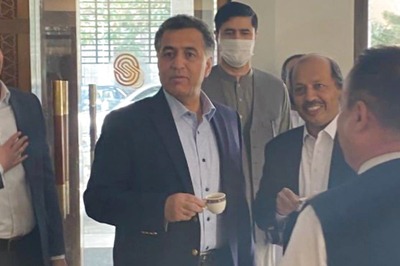
views
The Delhi High Court has held that private unaided schools, which have been allotted land by the land owning agency without the condition of seeking prior nod of the DoE for increasing fees, can hike the fees without obtaining such approval.
Justice C Hari Shankar said the Directorate of Education (DoE) will have the jurisdiction to interfere with the statement of fees submitted to it by a school only if it finds that the proposed increase in fee would result in profiteering and, thereby, in commercialisation of education.
The high court's judgement came while setting aside a July 18, 2017 order of the DoE to the extent that Ramjas School, RK Puram, cannot increase fee for the academic session 2016-17 and in case, hiked fee has already been charged from the parents, it shall be refunded or adjusted.
“The impugned order, dated July 18, 2017, issued by the DoE, is quashed and set aside, to the extent of Directions therein, with consequential relief to the petitioner (Ramjas School),” the high court said.
It added, “It is clarified that, in the case of an unaided school, which has not been allotted land, by the land owning agency, subject to the condition that prior approval of the DoE is required to be obtained before increasing its fees, the school would not be required to obtain any such prior approval, before increasing its fees in any ensuing academic session.”
It further said, “The DoE would have the jurisdiction to interfere, with the statement of fees submitted by such school under Section 17(3) of the Delhi School Education (DSE) Act, only by returning a positive finding that, in the light of the existing financial position of the school, the proposed increase in fee would result in profiteering, and, thereby, in commercialisation of education, and not otherwise.”
According to Ramjas School, it was allotted land by the Land and Development Office (L & DO) in 1974 and there was no clause in any of the documents relating to allotment of land to the institution, requiring to obtain prior approval of the DoE before increase of fees.
The school was not subject to any 'land clause' and it was a private unaided school which received no aid from the DoE or from any governmental authority, and was, therefore, dependent on the fees collected by it to administer its affairs, it said.
According to the school, the autonomy available to a private unaided school in the management of its affairs extends to fixation of its fees and the DoE cannot arrogate to itself the best discretion in that regard.
It said the DoE cannot opine that the surplus funds, available with a private unaided school, were more than sufficient to manage its affairs and, therefore, no justification for increase of fees existed.
The DoE, represented through Delhi government standing counsel Ramesh Singh, contended that the power vested in the DoE to ensure that the schools do not indulge in commercialisation of education extends to interfering with the manner in which fees are fixed by the institution.
Fixation of fees by the school in such a manner as would result in collections grossly in excess of the expenses incurred by the school may amount to commercialisation of education by the school and would justify interference by the DoE, it said.
The school had said it was 50-year-old and its furniture and fixtures had become totally outdated, requiring urgent upgradation and replacement, so that it could remain at par with the neighbouring schools and the expenses were incurred for the benefit of students alone




















Comments
0 comment